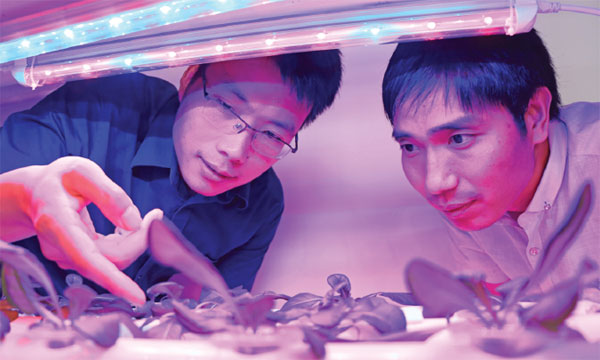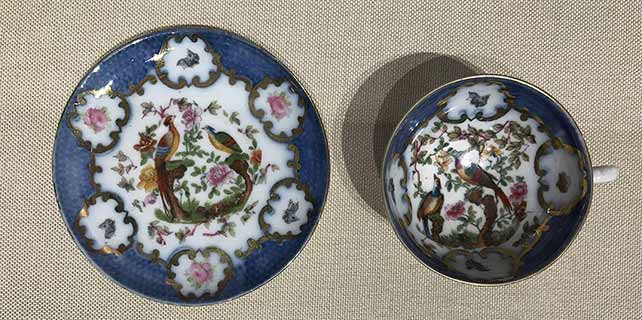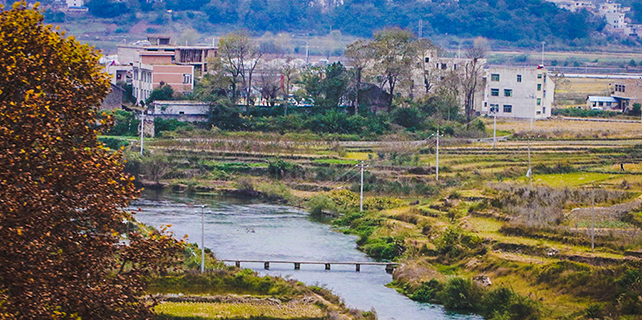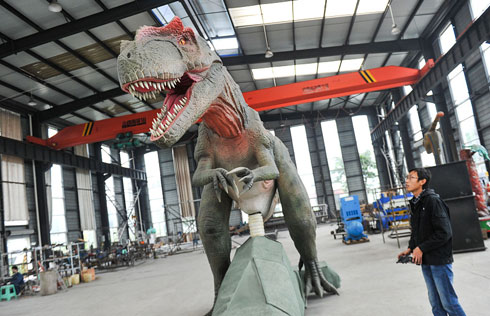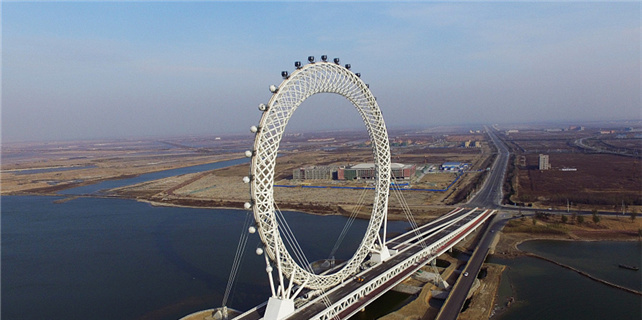Hefei, the city 'where a lot is happening'
Growing plants with less water could be a vital breakthrough for a country like China that is often faced with chronic water shortages.
Angkefeng Optoelectronics Technology, a startup based in the Institute of Advanced Technology incubator in Hefei, Anhui province, is one company trying to make this a reality
It has developed a film that, when put on glass, refracts light so that plants in greenhouse environments can grow with less water. The refracted light can also be turned into electricity.
|
Angkefeng Optoelectronics Technology has developed a film that, when put on glass, refracts light so that plants in greenhouse environments can grow with less water. The refracted light can also be turned into electricity. Zhu Lixin / China Daily |
Li Ming, 33, who is one of the company's founders, says the fact that Hefei has been made a pilot city for the government's Made in China 2025 strategy could be important for the business as it develops.
"As a result of the strategy, we will be able to get funding from the institute and guidance in running the business. Startups like us see it as a great opportunity," he says.
Li founded the business, which now employs 20 people, in 2012 with Zhang Fanxin, 37, a fellow PhD student at the University of Science and Technology; their academic supervisor, Liu Wen, 57, who also is an investor; and Yan Ru, 36, who is in charge of marketing. They also received 30 million yuan ($4.54 million; 3.83 million euros; £3.39 million) in venture capital funding.
"The problem for us is that, although we are doing cutting-edge research, we don't know how to run a business. That is why working in this incubator works for us."
JEE Automation, one of Hefei's leading companies, is also making breakthroughs.
It makes assembly lines for some of the world's leading automotive companies, including PSA Peugeot Citroen and Jaguar Land Rover.
It recently made China's first assembly line - for aluminum car bodies - that operates with just robots, with no need for humans.
The company, which was founded in 2005 and now employs 1,350, has boosted its investment in research and development over the past five years from 6 percent of turnover to 10 percent.
Michael Wang, general manager and one of the company's original eight founders, says the national strategy will be a major encouragement.
"We can only get financial support if our technologies continue to be cutting-edge. With a business like this, we always have to keep ahead and invest for the future," he says.
Industrial upgrading is not restricted to technologies of the future, but also involves traditional businesses.
Anhui Heli, which makes forklift trucks, launched its first self-driving truck last year, and a subsidiary of Copenhagen-based Maersk Group was its first customer.
Ma Qingfeng, the company's 53-year-old chief engineer, who was wearing the same blue uniform as all staff members, says that being on top of new technologies is vital for the company.
"We have made efforts to improve the human-machine interaction and the intelligent management systems of the forklift trucks using internet of things technology," he says.
"The Made in China strategy makes all companies target improving their technologies, and in that way it is not just good for us, but for all businesses."
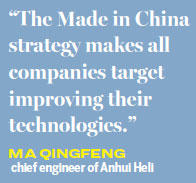
The company, which is based in the Hefei Economic and Technological Development Area and invests 3.6 percent of its turnover in research and development, expects to export 16,000 trucks this year out of a total production of 100,000. This is up from 13,000 in 2016.
Ma, who has worked for the company for 31 years and is a graduate of Hefei University of Technology, says the company is working in a very competitive market.
"China is a completely open market in this sector. All of the world's 10 largest forklift truck manufacturers are competing in this country," he says.
"There has always been a problem in this market in that we are all producing similar products, so it is very important for us to differentiate ourselves."
Wang at JEE, who got a doctorate from Port Elizabeth Technikon in South Africa, believes there are a lot of incentives for businesses to consider relocating to inland provinces, particularly now that Hefei is a pilot city for Made in China 2025.
"It might not be a big city like Beijing and Shanghai, but life is easier here, particularly in terms of housing, which is a lot cheaper. The salaries we can give to employees are also competitive compared with those in the big cities."
Ma from Heli says the city and its economy have been transformed over the past 40 years.
"It used to be essentially agriculture and mining engineering. Now there are a lot of enterprises in the IT and other technology sectors. It is a place where a lot is happening."
Contact the writer at andrew@chinadaily.com.cn
(China Daily European Weekly 12/01/2017 page7)



